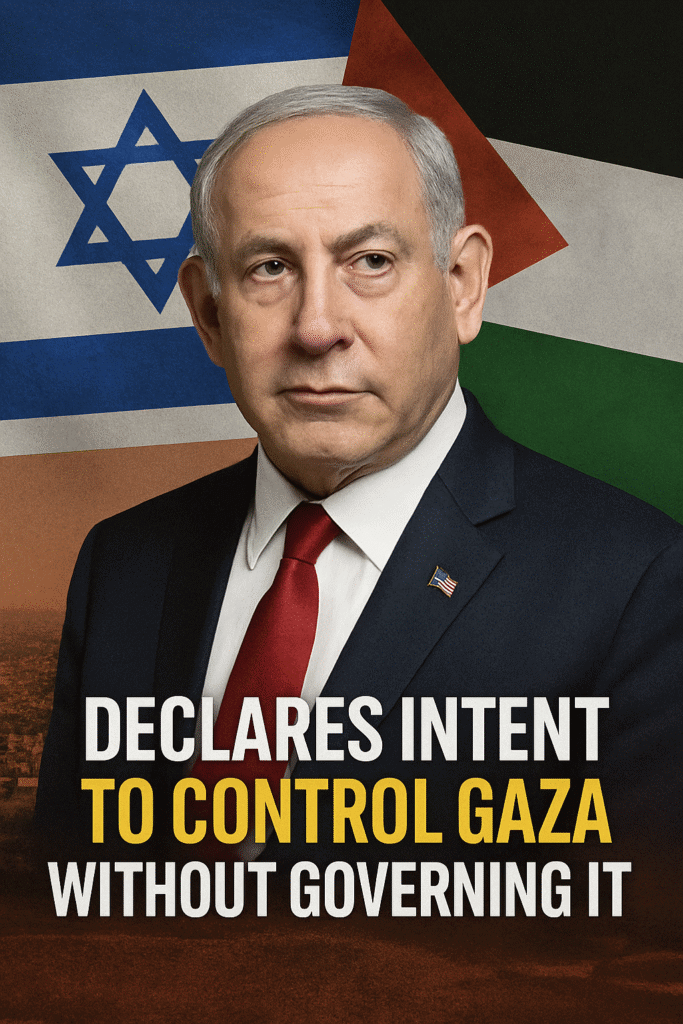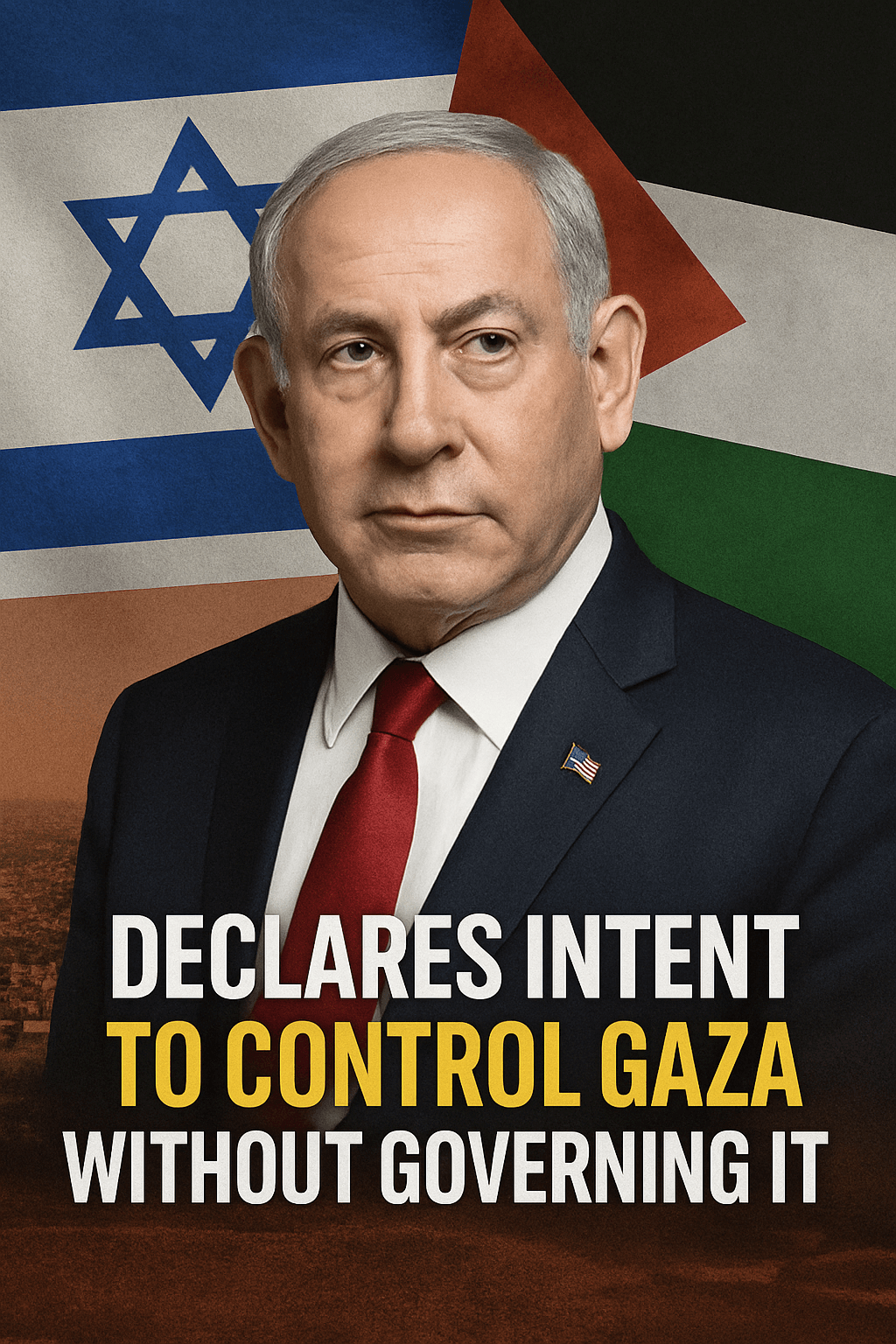Netanyahu Declares Intent to Control Gaza Without Governing It, Raising Global Alarms
Israeli PM outlines controversial plan in Fox News interview ahead of key cabinet meeting
Jerusalem, August 8, 2025 — In a major policy declaration, Israeli Prime Minister Benjamin Netanyahu announced that Israel plans to take full control of the Gaza Strip, but does not intend to govern it. The statement, made during an exclusive interview with Fox News, comes just before a crucial cabinet session where his proposal is expected to be debated.
“We aim to ensure our national security by removing Hamas from Gaza. After that, we plan to hand over control to a civilian authority — one that does not support the destruction of Israel,” Netanyahu told Fox News.
While insisting that Israel does not want a permanent presence, Netanyahu emphasized the need for a security buffer around Gaza, saying Israel seeks to establish perimeter control, but pass day-to-day governance to Arab forces.

Hamas Condemns the Statement Amid Fragile Ceasefire Talks
Hamas sharply criticized Netanyahu’s remarks, calling them “a political coup” that undermines ongoing ceasefire negotiations. In an official statement, the group accused the Israeli leader of using the military campaign in Gaza to serve his own political interests — even at the expense of Israeli hostages still held in the region.
Public Pressure Mounts Over Humanitarian Crisis and Captives
As the Israeli security cabinet convened in Jerusalem, hundreds of protesters gathered near the Prime Minister’s Office, urging the government to prioritize the release of captives over escalating military operations.
Meanwhile, the humanitarian situation in Gaza has continued to deteriorate. According to the Gaza Health Ministry, four more people — including children — died of famine and malnutrition in the past 24 hours. Since the war began following the Hamas-led attack on October 7, 2023, 197 people, including 96 children, have died due to hunger-related causes.
The United Nations has issued fresh warnings about a potential famine if hostilities persist. UN spokesperson Farhan Haq stressed the risk of mass starvation, saying the conflict could trigger “huge levels of humanitarian suffering.”

Military Leadership Divided on Gaza Reoccupation
The potential reoccupation of Gaza has stirred friction within Israel’s leadership. Reports in the Israeli press highlight tensions between Prime Minister Netanyahu and IDF Chief of Staff Lt. Gen. Eyal Zamir, who is said to oppose a full-scale return to Gaza.
In a rare public statement, Zamir affirmed his independence and duty to speak openly:
“We are dealing with life-and-death decisions and the defense of our state. We owe it to our soldiers and citizens to be honest,” he said.
Defense Minister Israel Katz acknowledged Zamir’s right to voice dissent, but emphasized that the military must follow government policy once it is decided.
Critics Question Feasibility of “Third-Party Governance”
Netanyahu’s idea of handing Gaza to an alternative civilian force has sparked skepticism among analysts and journalists. Gideon Levy, a veteran columnist for Israeli newspaper Haaretz, dismissed the concept as unrealistic.
“Who exactly is supposed to go in and govern Gaza? No one besides the Israeli military is likely to step in,” Levy said in an interview with Al Jazeera.
Levy also suggested that the real objective may be more troubling:
“This war seems designed to displace the people of Gaza into so-called ‘humanitarian zones’ — and eventually push them out entirely. That amounts to ethnic cleansing.”
Conclusion
Netanyahu’s latest comments underscore the deep divisions both within Israel and globally over how to resolve the ongoing Gaza crisis. As the cabinet debates intensify and international pressure mounts, the future of Gaza — and its people — hangs in the balance.
Israeli journalist Gideon Levy called the plan unrealistic in his remarks to Al Jazeera.
Share this content:




